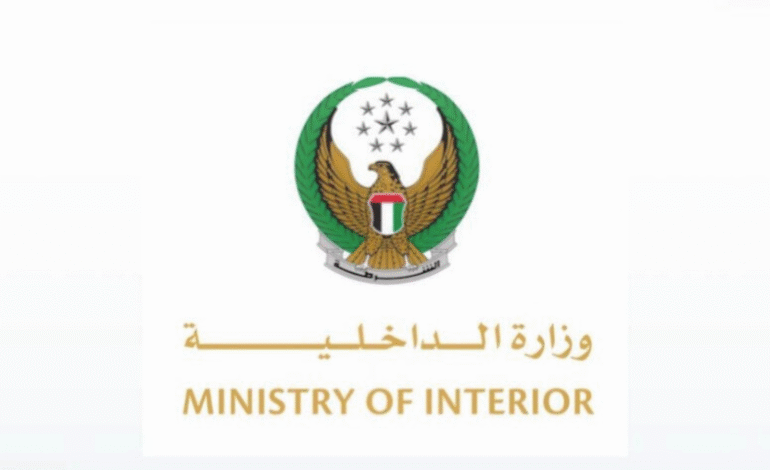UAE MoI Strengthens Global Crypto Security at Singapore Workshop

The United Arab Emirates (UAE) continues to show strong leadership in global security. The Ministry of Interior (MoI), through its International Affairs Office, took part in the International Cryptocurrency Security Action Week in Singapore.
The event, organized by the Secure Communities Forum in partnership with Mastercard, brought together top international law enforcement agencies, technology leaders, and private companies. The goal was clear — strengthen digital security and tackle the rising challenges of cryptocurrency-related crime.
For the UAE, this participation highlights its role as a key partner in building safer digital economies, not just locally, but worldwide.
Why cryptocurrency security matters today
Cryptocurrency has created new opportunities for investment, payments, and innovation. However, it has also opened doors for criminals. From money laundering and fraud to dark web transactions, digital assets bring risks that cross borders.
Unlike traditional finance, crypto transactions are harder to trace, and criminals use this to hide illegal activity. Governments, law enforcement, and private companies must work together to stay one step ahead.
The UAE, already a global hub for finance and technology, knows that protecting the crypto space is vital to safeguarding its economy and reputation.
Who attended the workshop
The Singapore workshop brought together hundreds of experts and officials from dozens of organizations. It was a rare chance for global cooperation between governments, international bodies, and the private sector.
Some of the most notable participants included:
- United Nations Office on Drugs and Crime (UNODC)
- INTERPOL
- U.S. Internal Revenue Service (IRS)
- Royal Malaysian Police
- Data Security Council of India
- Nanyang Technological University
- Rabdan Academy
- Leading global technology and data analytics companies
The mix of participants showed how wide the network of crypto crime prevention needs to be — covering law enforcement, academia, and industry.
Tailored for law enforcement and security professionals
Unlike a general tech event, this workshop was designed specifically for law enforcement officers and security professionals. Every session was built to give participants real tools they could take back and use in their daily work.
The program included:
- Practical training on tracking crypto fraud and dark web activities
- Case studies of international money laundering networks
- Expert talks on digital assets and regulations
- Panel discussions connecting agencies and private companies
This practical focus made the event valuable for countries like the UAE, where law enforcement is rapidly building new skills to deal with emerging digital threats.
Three main focus areas
The workshop was structured around three core areas that are essential in the fight against crypto crime:
-
Investigating cryptocurrency crimes
Experts shared advanced methods to track illegal transactions across blockchains. Topics included:
- Following the trail of stolen crypto
- Using forensic blockchain tools to trace hidden wallets
- Identifying patterns of money laundering
- Monitoring illegal activity on the dark web
The message was clear: criminals may think crypto makes them invisible, but with the right tools, law enforcement can follow their digital footprints.
-
Building public-private cooperation
One of the strongest outcomes of the event was the call for closer partnerships between law enforcement and the private sector.
Crypto exchanges, analytics firms, and financial companies hold vital data that can help investigations. By working together, they can share intelligence, detect red flags early, and stop crimes before they spread.
This kind of partnership is especially important for the UAE, which is positioning itself as a global fintech hub. A safe and trusted ecosystem encourages investors, innovators, and businesses to grow.
-
Preparing for the future of digital assets
The final focus was forward-looking. Experts discussed how regulations and risks are changing quickly as digital assets evolve.
Key topics included:
- Central Bank Digital Currencies (CBDCs)
- Stablecoins and their regulatory challenges
- New fraud schemes linked to DeFi (Decentralized Finance)
- Adapting laws and compliance to keep pace
The UAE, which has already introduced strong regulatory frameworks for digital assets, can use these insights to strengthen its policies and stay ahead of criminals.
What this means for the UAE
The UAE’s participation in Singapore is more than symbolic. It has real benefits for national security, financial stability, and the country’s image as a leader in innovation.
Stronger laws and regulations
By learning from global experts, the UAE can continue updating its laws on cryptocurrency. This includes clearer rules on anti-money laundering (AML), know-your-customer (KYC), and suspicious transaction reporting.
Better investigative skills
UAE law enforcement officers can now apply new techniques and tools to track down crypto-related crimes. This makes it harder for criminals to hide and easier to bring them to justice.
Regional leadership
The UAE is already seen as a leader in the Middle East for digital finance. Active participation in global workshops strengthens its role as a trusted and secure hub for innovation.
Building public trust
Citizens, businesses, and investors feel more confident knowing that the government is actively protecting digital spaces. Trust is key for the long-term growth of crypto adoption.
Ongoing challenges
While the workshop offered solutions, there are still major challenges ahead:
- Technology moves fast: Criminals keep finding new ways to hide money. Law enforcement must keep learning.
- Cross-border issues: Crimes often involve many countries, making cooperation difficult.
- Privacy vs security: Striking the right balance between user privacy and monitoring illegal activity is complex.
- Limited resources: Some agencies may not have the tools or expertise needed.
Addressing these challenges will require continuous training, better coordination, and strong investment in technology.
The road ahead
For the UAE and its partners, the next steps include:
- Expanding international cooperation with agencies like INTERPOL and UNODC
- Setting higher compliance standards for crypto companies in the region
- Running public awareness campaigns on crypto scams and frauds
- Investing in AI and blockchain analysis tools to track suspicious activity faster
With these steps, the UAE is preparing not just to respond to crypto crime, but to stay ahead of it.
Final note
The UAE’s Ministry of Interior taking part in the International Cryptocurrency Security Action Week in Singapore shows the country’s commitment to building a secure and innovative digital future.
By working with international agencies and private partners, the UAE is not only protecting itself but also helping shape a safer global crypto environment.








1 Comment
[…] Crypto markets remain volatile. While regulation provides structure, it can’t eliminate market risks. Institutional involvement may increase liquidity and capital flow. It also raises expectations and scrutiny. Regulatory clarity does not guarantee price stability or protection against market-wide risks. […]
Comments are closed.